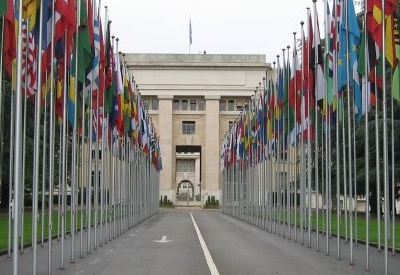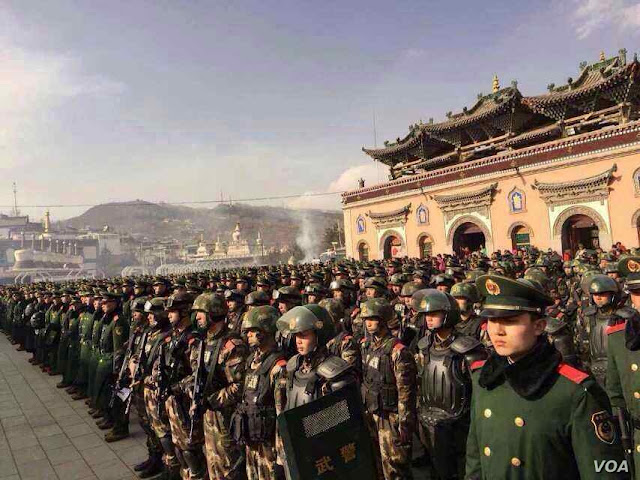Engaged Buddhism; a solution to limit environmental degradation
Abstract
Thich Nhat Hanh advocates for "Engaged
Buddhism" to curb the effects of ideology that impacted Vietnam, and spurred
modernity in a postindustrial society. To manage the ecological crisis effectively, will necessitate all citizens to adopt a Sangha or community approach, while drawing on mindfulness
to inform humans of the need to be compassionate, in order for ecological
salvation.
Keywords: Engaged Buddhism, Modernity, Challenger Shuttle
Introduction
"Forgetfullness,
fear, anger, and greed" are the principle traits Hanh attributes to the
devastation of our eco-system.[1] On January 28, 1986, I was watching on
television, with horror, the Challenger space shuttle disaster. This event is an archetype of what Hanh is
alluding to in his doctrine. The commodification of an arms race has now spread
to the universe, and even China has vowed to appoint the next Dalai Lama when
he passes away.
The United States
entered into a defacto role as global policeman during World War Two to oust a
Nazi regime that was on a quest to revitalize a German economy damaged by
sanctions from The Treaty of Versailles, pertaining to reparations from
Germany's role in World War One. Germany was engulfed in fear, anger, and greed
that was stoked by Adolf Hitler against the Jewish community and other groups.
Therefore, the post
industrial revolution spawned a shift towards modernity because modernity held
great promise to enable humanity to live more efficient lives and expand the
natural lifespans of humankind, which it has at a cost to the environment.
"Major
Malfunction"
The
settling of territory in developing nation - states, such as the United States,
Canada, and Europe, expanded capitalisms reach and quest for an improvement in
material wealth for most citizens. Thus, greed became a double - edged sword
for governments to manage their economies, particularly, during the stock
market crash of 1929 that swept across the globe, resulting in the Great
Depression, that continued until 1933.
The same factors: fear, anger and
greed, that led to growth leading up to the economic downturn, existed during
the Depression, as well. In addition, with the outbreak of World War Two, the
same factors prevailed, except the violence element magnified by war, had
serious ecological implications for the natural environment and humanity.
Therefore, considering Hanh's notion of "engaged Buddhism" to manage
elements of global conflict, that include environmental degradation;
incorporating the Buddha, Dhamma, and Sangha offers the basis for a political
structure or single ideology to manage the environment, that will provide
consistency and curtail economic shocks. Moreover, it will provide peace from
region to region.
Ultimately,
human beings fall into the trap of having freedom of choice and with that
freedom the need to acquire power and control over other sentient beings in
order to survive and further their cause.
Despite the success of the Allied Powers in defeating Fascism and the
Nazi Party, the international community became split into two camps: capitalism
and socialism, with ironically, a Soviet Union governed by socialism, integral
in helping defeat Hitler and the Nazi Party.
America, then as now, is emboldened by its role as an economic and
military global force. Indeed the Bretton Woods conference in post war 1944
established the U.S. currency as the defacto trading medium that remains
dominant today. The shock coming out of WW2 meant that many nation states had
to rebuild their infrastructures, which was good for the economies, yet, many
were left outside trying to find their way in a new world order with many hopes
for expansion through modernity. And with automobiles becoming more mainstream
as well as air travel, the sky was the limit, although America had its sights
on a space race to challenge complete superiority over other nation states,
particularly, the Soviet Union, that in a post WW2 universe controlled an area
the size of North America. Suffice it to say, the two nations were locked in an
ideological struggle until the Soviet Union collapsed in 1991.
Currently,
China remains the dominant voice of socialism with many elements of capitalisms
free market structure present. However, returning to the Bretton Woods period,
western nations adopted a "Keynesian" approach to bolstering the
economies and establishing the modern welfare state to provide for its
citizens. This provided an antidote to economic downturns, but, also, a basis
for government largesse and taxation that provides a smokescreen for the
problems attached to modernity ascribed by Hanh: a delusion of wealth and a
better life co-opting violence and fear through competition for goods resulting in the
commodification of most organic objects. We can see these traits, such as elephant tusks and human labor,
both of which typify an ecological disaster for marine life, earth wild life,
and the quality of necessary goods for human survival: air, water, and food,
that are under great pressure from those seeking to make a profit.
Humans
attachment to greed and fear is manifest in capitalism, a priority in secular
China, and reinforced in the west through Hollywood major motion pictures. The
race for space superiority found America continuing in their space program through
NASA, that led to the disaster on January 28, 1986 when the space mission
already being rushed, exploded after 763 seconds killing all seven members
aboard the flight.
Conclusion
Engaged
Buddhism is parochial in a modernity infused world that values wealth,
innovation, and big government over pragmatism, a form of proportional
representation that represents the concerns of the majority, responsibility
for the environment, and the well being of all sentient beings.
Private citizens will continue to lobby for a stronger voice on important issues, such as the environment, while the concept of Engaged Buddhism through the locus of the Sangha can mitigate
against critical issues facing humanity, considering violence against the environment as one form - similarly dangerous to forms of physical abuse. If we consider Garrett Hardin's essay:
Tragedy of the Commons, there is currently an expanding global population
estimated to reach approximately 11 billion by 2100 (according to UN
estimates,) that is exacerbating natural resources and a way of life that
supports all sentient beings. Anthropogenics must be considered a factor based on the sheer population increase by humans on the Earth's surface on their own merits; combining our expanded presence with our consumption of the necessary means to survive, humans need to make do with a lot less than what we believe essential in order to fulfil our illusion of a particular lifestyle that may be bought and bred by Hollywood among others. Incorporating mindfulness into our daily routine, promises positive spillover effects into all areas of our lifestyle. Humans need to accept some traits of Buddhism to allow the change to begin. Pew Research reported that Buddhists comprise 7% of the global population, though, by 2060 that will drop to 5% due to typically low fertility rates among adherents. Currently, humanity continues its commodification and fetisization of consumer goods. The result: a "major malfunction."
Major Malfunction -- Challenger Shuttle
--------------------------------------------------------------------------------------------------
A recent annual report released by the World Meteorological Organization (WHO) underscored the need for nation states to accept and modify their approach to climate change. Some of their findings include:
Major Malfunction -- Challenger Shuttle
--------------------------------------------------------------------------------------------------
A recent annual report released by the World Meteorological Organization (WHO) underscored the need for nation states to accept and modify their approach to climate change. Some of their findings include:
** 2019 is on course to be the second- or third-warmest year on record.
** Sea water is 26 percent more acidic than at the start of the industrial era, degrading marine ecosystems.
** Arctic sea-ice neared record lows in September and October, and Antarctica also saw record low ice several times this year.
** Climate change is a key driver of a recent rise in global hunger after a decade of steady declines, with more than 820 million people suffering from hunger in 2018.
** Weather disasters displaced millions of people this year and affected rainfall patterns from India to northern Russia and the central United States, and many other regions.
The report also noted that surges in sea temperatures known as “marine heatwaves” which devastate underwater life had become more common.
The report said the concentration of CO2 in the atmosphere hit a record level of 407.8 parts per million in 2018 and continued to rise in 2019. Opening the climate summit on Monday, United Nations Secretary-General Antonio Guterres had warned that 400 parts per million had once been considered an “unthinkable” tipping point.
A drumbeat of dire reports from climate science in the past year has fueled environmental activism, prompted some companies to commit to slashing emissions and raised concerns among investors about the stability of asset prices.
Nevertheless, delegates in Madrid are facing an uphill battle to persuade major emitters to embrace the kind of radical change needed to shift the Earth’s climate system onto a more habitable trajectory.





